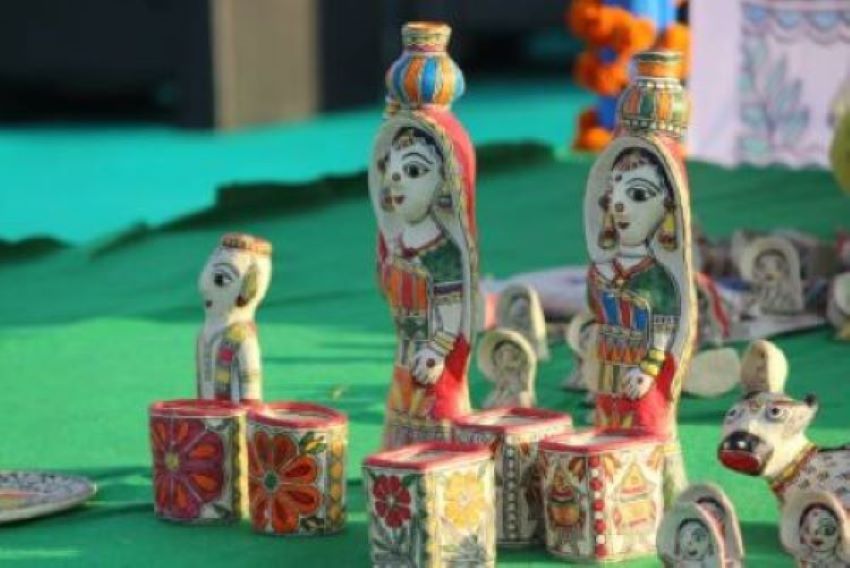Sudha Murty lives her life with passion and courage.
She carries with herself a love for simplicity and a love for her country India, in her heart and on her person wherever in the world she goes.
She proudly wears her Bindi, her Saree, and her Salwar-Kameez.
I respect and admire what she has achieved professionally and the way she conducts her work with honesty and integrity, as the Chairperson of Infosys Foundation. She writes in Kannada and English.
As a writer, she chooses to use simple language (in this case English) to convey and express her impressions, thoughts, and emotions about the people whose stories she shares.
The words may be simple but their impact is strong. You may not have had similar experiences but you can easily empathize with the challenges faced by some of the people in her books.
You meet all sorts of people in her stories – weak, courageous, good, bad, kind, corrupt, and more.
The Wise and Otherwise – A Salute to Life
In this book, Sudha writes about her experiences with people and people’s experiences in their own lives.
She captures and honors the value of these people, their conduct, and their lives.

There are a few stories about the uncomplicated and straightforward attitude of the tribals living in remote and dense forests.
Sudha finds them to be more civilized than the so-called urbanized people.
An Old Man’s Ageless Wisdom
In this story about an old Man, she discovers something that is as beautiful as the forests, the lakes, and the temples in Orissa.
Sudha went there to understand the tribal people’s perspective on civilization.
She saw calm and content people going about their lives amidst all the beauty that only Nature can offer.
Her interaction with an old tribal man offers a glimpse into a contrasting worldview between tribal communities and mainstream society.
She noticed how different the tribals’ way of life was.
The tribal people lived in close-knit groups, free from the rigidity of civilized rituals.
Their lack of the concept of individual property ownership highlighted their simplicity and directness.
Sudha’s tried to comprehend the tribal perspective on material things by initiating a discussion with the old man on the barter system.
She asked the old man about trading things, and the old man responded with a simple wisdom.
He did not understand why a small piece of paper (money) could buy so much.
To him, the land and nature were gifts from God. And they had lived happily without worrying about buying or selling things.
The old man challenged the idea of transactions and questioned how something as small as a piece of paper could change their lives so much.
The old man’s response highlighted the commodification of land and resources.
His words revealed the vast differences between modern values and the tribal way of life, where nature was seen as a gift rather than something to be bought or sold.
The old man’s skepticism towards the author’s “little piece of paper” as a medium for transactions reflected a profound resistance to the intrusion of external values that could disrupt their harmonious existence.
Honesty Comes from the Heart
Honesty Comes from the Heart, is a story about the exceptional integrity and virtue that she got to experience in the conduct of a poor boy belonging to a tribal background.
When she extended financial support to this bright student, she was amazed by his sincerity while using that money.
A Lesson in Life from a Beggar
This is the story of pessimism versus optimism, resentment versus contentment in life.
Sudha shares the story of her friend who had more than enough tangible and intangible resources in life but still lacked the ability to be happy.
Sudha constantly wondered why her friend should be having such a negative view of everything which is shown through a number of conversations between both of them.
Over many years her friend continued with her journey on the path of pessimism.
But in one of their meetings after a long time, Sudha was happy to discover how a beggar inspired her friend to adjust her perspective on life and lead her to make efforts to change for the better.
There are many other stories that relate to human nature and its various dimensions – ordinary, bizarre, benevolence, covetousness, humility, and pride.
Three Thousand Stitches – Ordinary People Extraordinary Lives
This book is about people living through some fantastic and unusual moments in their lives.
Sudha has included incidents from her own life as well as stories of several other people.
A Powerful Ambassador
In this story, Sudha talks about her lifelong love for films and cinema.
She especially mentions the fondness that she and many people like her around the world have for Bollywood movies.
During her childhood, watching movies was not considered appropriate for young minds.
They could mainly watch religious and inspiring movies that too under the supervision of an adult.
No other types of movies were allowed, the only exception was children’s movies under adult supervision.
She was born in 1950, in Shiggaoan, a village in Karnataka.
As a teen, when her family moved to a small city Hubli, Sudha got opportunities to watch movies of other genres.
She especially admired the unique persona of the yesteryear actors like Meena Kumari, Madhubala, Asha Parekh, Sadhana, Waheeda Rahman, Rajesh Khanna, and Rajendra Kumar.
She tells how her passion for movies ignited a bold spirit in her all through her growing years.
When she reached college she made the boldest move of her life till then by announcing to her parents ‘I refuse to watch religious films. Now, I want to see Rajesh Khanna’s movies.’
She recounts more of her increasingly adventurous moves on her movie-watching journey.
Her passion found a lot of fulfillment in Bengaluru (which she calls a Heaven) which had movie theatres providing her with a variety of options.
Sudha talks about her interest in travel with equal passion.
She recalls an interesting incident that happened in a local market in Shiraz (Iran).
There she discovers that there are people in Iran who love Bollywood as much as she does. They adore Hindi movies and Bollywood actors.
On one of the shopping sprees, she found a similar fondness for Bollywood and its actors in an unlikely place Havana, Cuba.
One can not help but smile when she shares how she claimed a Hindi movie song (being performed at a restaurant in Bukhara) by asserting – But that song is mine!
She exclaims to the Uzbeki singer singing Bollywood songs that she was from India and the song belonged to her country.
Three Handsful of Water
This story is about her grandparents’ devotion to the city Kashi and the river Ganga.
Sudha writes about the beliefs and values that her grandparents held close to their hearts.
Though they could not visit Kashi ever in their lives still they had a strong emotional bond with the place.
During those times, the travel from the South of India to Kashi which is in the North of India was a difficult one.
People traveled only in groups. And when those blessed ones reached back, their journey would be celebrated.
They invited others to their homes for a feast. The guests were given the holy water of Ganga and the sacred black thread from Kashi, as a gift.
While going with her grandmother on one such invitation, little Sudha asked her grandmother why a journey needs to be celebrated like this.
Her grandmother explained it all in her truly devotional spirit and tone.
In my opinion, those difficulties of travel must have made those destinations more valuable and precious.
After all, it was a matter of faith. That is why people could transcend all the challenges they were bound to face.
The huge differences in the weather from what they were used to, the difficulties of an unknown language, and the fear of unknown people.
But those journeys must have broadened their horizons and widened their perspective so that they could appreciate the similarities of human life everywhere.
The challenges must have played a role in strengthening their belief in God. On a practical level, they must have learned skills like adaptability and survival.
Coming back to the story, later in life when it had become easier to travel from South to North of India and she gets a chance, Sudha finds herself taking an emotional journey on the behalf of her grandparents.
The ritual of offering three hands full of water to the Ganga turns out to be a fulfilling experience for her.
There she remembers what her grandfather had told her about detaching one’s self from too many desires.
She realizes why and how her grandparents were content in their lives.
There are several other stories in this book that are equally engrossing.
Read The Review Of – The Pianist Of Yarmouk by Aeham Ahmad
